Mozambique: Mondlane acknowledges "less correct decisions"
Renamo accuses, STAE denies
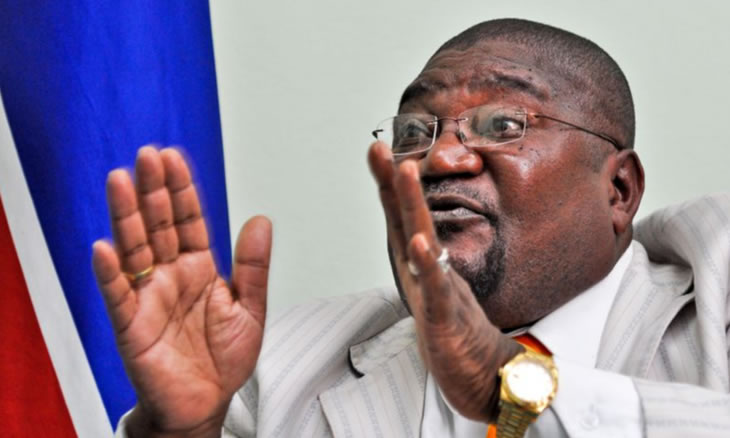
Ossufo Momade. File photo: O País
With less than 48 hours to go before the end of Mozambique’s voter registration period, Ossufo Momade, the leader of the country’s main opposition party, the former rebel movement Renamo, has demanded an extension.
Speaking by phone from his bush headquarters in the central district of Gorongosa to a press conference in Maputo, Momade alleged that “serious problems” with the registration “are calling into question free, fair and transparent elections”. Renamo therefore demanded an extension, but without changing the date of 15 October for the presidential, parliamentary and provincial elections.
Momade did not say how long he thought the extension should be. The voter registration was initially fixed for 1April to 15 May – but the devastation caused by cyclone Idai in the central provinces caused the government to postpone the start of the registration by a fortnight.
Registration began on 15 April and is due to end on Thursday evening at 17.00. The chairperson of the National Elections Commission (CNE), Abdul Carimo, has ruled out any further extension. An extension would have to be agreed by the Council of Ministers (Cabinet), which is not scheduled to meet again until next week.
Momade made a series of accusations – but the Electoral Administration Technical Secretariat (STAE), the executive wing of the CNE, has dismissed most of them as false.
Momade blamed the breakdowns in voter registration on obsolete equipment. “The government used the public treasury to buy obsolete equipment, which is why there are constant breakdowns in the Mobile IDs (the registration kits)”, he said.
“That’s a lie”, STAE spokesperson Claudio Langa told AIM. “We purchased 3,000 new Mobile IDs before this registration started. Last year, in the registration ahead of the municipal elections we used Mobile IDs from the 2013 and 2014 registrations, which have been upgraded. The equipment is not obsolete”.
He added that the Mobile IDs used in 2018 have remained allocated to registration brigades working in the districts containing municipalities. The new equipment was all allocated to non-municipal, essentially rural districts.
Momade claimed there was a lack of transport for the mobile brigades which cover more than one registration post. This, he said, was a deliberate ploy “with the sole purpose of registering only a few voters, particularly in areas where Renamo has great influence”.
Langa retorted that STAE has transport in all the districts. Some of the vehicles are provided by district and provincial governments, while others are hired from private operators.
Momade said that, when voters register, their voter cards are not issued for three or four days and are then handed over for delivery to “the secretaries of the dynamising groups” (bodies set up by the ruling Frelimo Party in the early days of independence). Momade said this “prevents Renamo members from receiving their cards, since only Frelimo members are considered”.
Langa said this was the first time he had heard such a complaint. Yet Renamo is represented at all levels of STAE (district, city, provincial and national) and on all the various election commissions. None of these Renamo appointees had ever raised the issue before.
Right from the start of the registration, Renamo had raised other allegations of political interference without any evidence. Thus in late April the Renamo election agent, Andre Majibire, had claimed that there was deliberate interference in the registration by neighbourhood secretaries and community leaders, who “draw up lists on the basis of which people should be registered, and when these lists are exhausted, the brigade members turn off the machines and allege they have broken down, thus obliging people to go home without registering”.
Langa said such allegations were investigated by STAE brigades, including Renamo appointees, who had found no evidence for the abuses. The reports saying there was no evidence was signed by the investigators, including those from Renamo.
Momade claimed there was systematic dual registration of public employees, particularly teachers and nurses, who were forced to register more than once in order to keep their jobs. Langa said he had never heard of this before and, even if it were true, once all the data from the registration brigades is transferred to a single, computerised register, all dual registrations will be discovered and eliminated.
Momade did not mention that Renamo has been caught attempting to register foreigners. According to the Mozambique Political Process Bulletin (published by the anti-corruption NGO, the Centre for Public Integrity), on 25 May the Maravia district court, in the western province of Tete, fined Renamo member Paolo Banda 17,000 meticais (about 270 US dollars) for helping three Zambians to register. He falsely claimed that the three were Mozambicans without documents.
The same Renamo member is accused of registering a further three Zambians in a case which has yet to come to trial.
Micheque Zulu, a Renamo-appointed member of the Maravia district elections commission, accused the court of pro-Frelimo bias, but he did not deny that the persons involved are indeed Zambian citizens.
“Those Zambians have lived in that village for more than five years”, he said. But under Mozambican legislation, only people who hold Mozambican nationality can vote, no matter how long they may have lived in the country.
The Bulletin reports that a few other attempted illegal registrations have been caught. Thus in Mecanhelas district, in the northern province of Niassa, police arrested a Malawian who was trying to register.
In Nacaroa, in the neighbouring province of Nampula, a woman identified only as Ivone had tried to scratch out her year of birth on her identity card to pretend she would be over 18 on polling day. Also in Nacaroa, a man named Eugenio Barnabe tried to register with documents belonging to somebody else, Eugenio Mendes Paulino.


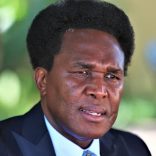
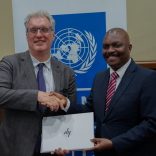

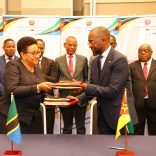

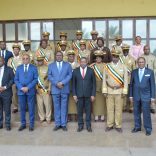




Leave a Reply
Be the First to Comment!
You must be logged in to post a comment.
You must be logged in to post a comment.